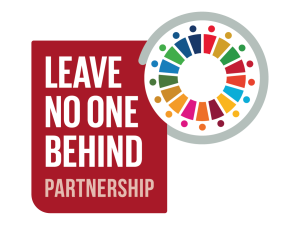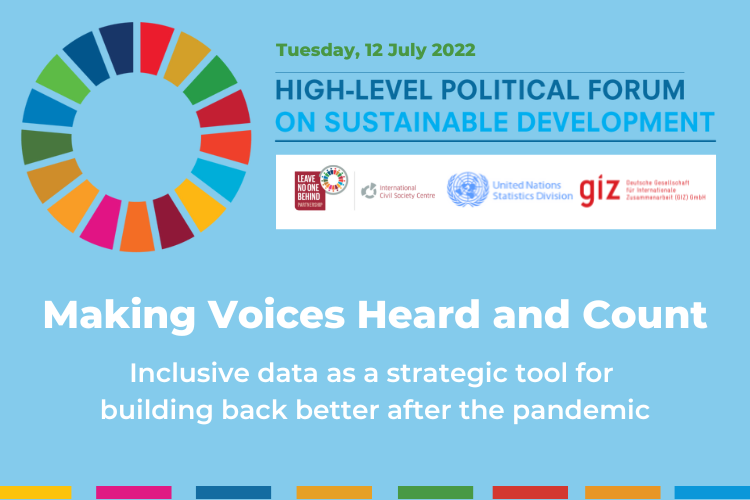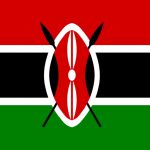View the recording of this session here.
As the COVID-19 pandemic continues to deepen inequalities around the globe and threaten the overall progress of the Agenda 2030 for Sustainable Development, this year’s High Level Political Forum (HLPF) brought together contributors from diverse backgrounds and geographies to highlight different impacts of the COVID-19 pandemic across all Sustainable Development Goals (SDG) and reflect on the actions required to build back better from the pandemic.
The Leave No One Behind Partnership at the 2022 High Level Political Forum (HLPF)
On July 12, The International Civil Society Centre (The Centre) co-hosted a virtual side event at the 2022 HLPF together with the German Development Agency (GIZ), with the support of the United Nations Statistics Division (UNSD) to explore inclusive data practices in communities (which are mostly overlooked in high level policy discourses) as a strategic tool for building back better after the pandemic. The event was moderated by Marthe Bekele from Development Initiatives.
The COVID-19 responses in many countries have overlooked the situation of marginalised communities, including but not limited to people with disability, women, girls, refugees, LGBTQIA+ and others. As a consequence, the chosen mitigation measures have often not reached these communities, or even worse: they have further exacerbated social and economic inequality and the exclusion of these groups. Part of the reason for this negligence is that government policy making is typically based on data that does not adequately represent all communities and their diverse needs. Relevant, timely, reliable and disaggregated (preferably real time) data is crucial for developing need-based and appropriate response and recovery measures during emergency situations.
Peter Koblowsky, Senior Partnership Manager from the Centre’s Leave No One Behind (LNOB) partnership, and Thomas Ongolo, Regional Advisor for Africa in GIZ commenced the session by sharing key insights from their organisations’ work around inclusive data sources like community–driven data (CDD), including disability data. The introduction was followed by a welcome remark by Yongyi Min, Chief of SDG Monitoring at UNSD. Yongyi emphasised how COVID–19 has impacted data collection around the world, declining data on SDG by over 20% in 2020. Against this backdrop, Yongyi highlighted the key role of inclusive data sources like CDD and the importance of the involvement of Community Based Organisations (CBOs), Civil Society Organisations (CSOs), government, community members and other stakeholders in all stages of SDG monitoring & review for building back better.
National Case Studies
Two national case studies were presented, one from Kenya and another from Rwanda. Sally Nduta, our colleague from LNOB Kenya and Chief Executive Officer at United Disabled Persons of Kenya (UDPK) spoke about the meaningful participation of Organisations of Persons with Disabilities (OPDs) in data processes. Sally mentioned their advocacy for more inclusive, reliable and timely data on Persons with Disability (PWD) through the disability movement in Kenya has allowed UDPK and LNOB Kenya to work in partnership with key stakeholders to ensure that Persons with Disability (PWD) are included in official statistics and policy reforms; budget and disability related interventions are informed by data. Two million Kenyans with disability will be voting in the upcoming election in 2022, which is a sizable segment of the population. Against this backdrop, the United Disabled Persons of Kenya (UDPK) and their partners were able to leverage disaggregated disability data to advocate for budget allocation on voter education, push for disability sensitive content and demand for better accessibility for PWD for the upcoming election.
Marcel Nkurayija from the National Council of Persons with Disabilities (NCPWD) of Rwanda echoed how the lack of inclusive data, such as disability data perpetuates lack of support for Persons with Disability (PWD), who are most in need. He presented the Disability Management Information System (DMIS) which was developed to fill the existing data and knowledge gap on PWD. The DMIS provides on demand identification and registry of Persons with Disability (PWD), real time interactive dashboards and maps on indicators, grievances and appeal system, comparison with census data on different levels and case management support to those who are in real need.
Panel Discussions
Our panel comprised of distinguished development professionals from a broad spectrum of disciplines who have worked extensively with inclusive data. Fried Lammerink, a GIZ Development Advisor working for the Government of Rwanda at the National Council of Persons with Disabilities (NCPD) shared his experiences with disability data collection at both Organisations of Persons with Disabilities (OPD) and Government level in Rwanda and Cambodia. Fried emphasised that disability data collected by Persons with Disability (PWD) ensures that their individual needs and barriers are properly reflected which allows governments in countries like Rwanda with limited financial capacities to provide solutions and develop policies that favor the individuals and groups that are most in need.
Kam Morshed, Senior Director at BRAC shared his reflections from the LNOB Bangladesh Platform. He explained how their community scorecards project conducted during COVID-19 lockdown has helped them provide experience-oriented pictures of the struggles and exclusion faced by over twelve marginalised communities in Bangladesh to the policy makers. The exercise resulted in the proposal of a set of action plans to the government, NSOs and other stakeholders to incorporate Community Driven Data (CDD) into the national statistical system and UNSD database.
Jennifer Madans, founding member and Chair of the Steering Committee at Washington Group on Disability Statistics and Senior Associate at the Centre for inclusive Policy suggested using a common conceptual framework and standard set of definitions for data collection where possible – such a standardised approach can help break down data silos and create a harmonised data infrastructure where everyone can build upon.
Mohammed Loufty from the Stakeholder Group of Persons with Disabilities highlighted the need for an intersectional approach to collect, analyse and disseminate inclusive data, including Community Driven Data (CDD). He mentioned that the CDD generated through the qualitative research led by his group during the pandemic highlighted that Organisations of Persons with Disabilities (OPD) played a meaningful role in the data ecosystem. The OPDs and NGOs supported their members and communities when the government did not and became sources of vital information. Learning from these findings is essential for addressing response and recovery plans in an inclusive manner for future emergencies.
Conclusion
The insights from the speakers and panellists not only reaffirmed the fact that there is a massive lack of high quality and relevant data on Persons with Disability (PWD) and other marginalised groups, but the discussions further highlighted the important role Organisations of Persons with Disabilities (OPDs) and other Civil Society Organisations (CSOs) can play in filling the existing data gaps, especially during emergency situations like COVID 19. Through Community Driven Data (CDDs) and other forms of inclusive data, CSOs and OPDs help bring innovative perspectives on certain population and their needs, issues and trends.
The community driven data (CDD) generation process enables marginalised communities and groups to engage directly with the states, governments and other service providers which empowers the communities to advocate for their needs and demand for improved services at grassroots level – this consequently has beneficial impact on their emotional and psychosocial wellbeing, especially during crises situations. Likewise, engaging with community members, listening to their stories, experiences and needs could help service providers to deliver a better and more effective response to the pandemic.
The discussion also shed light on the importance of working in partnership (with muti-stakeholder and sectoral partners, where communities’ stake is very important) and building partnerships to achieve this goal. Like Sally Nduta mentioned, we all hold a piece of the puzzle. Working together with key government ministries, statistical divisions, UN agencies, development actors and engaging CSOs and the communities themselves in data collection offers a promising way to fill data gaps, break data silos and build better and more diverse data infrastructures for broad based and inclusive development.
View the recording of this session here.








